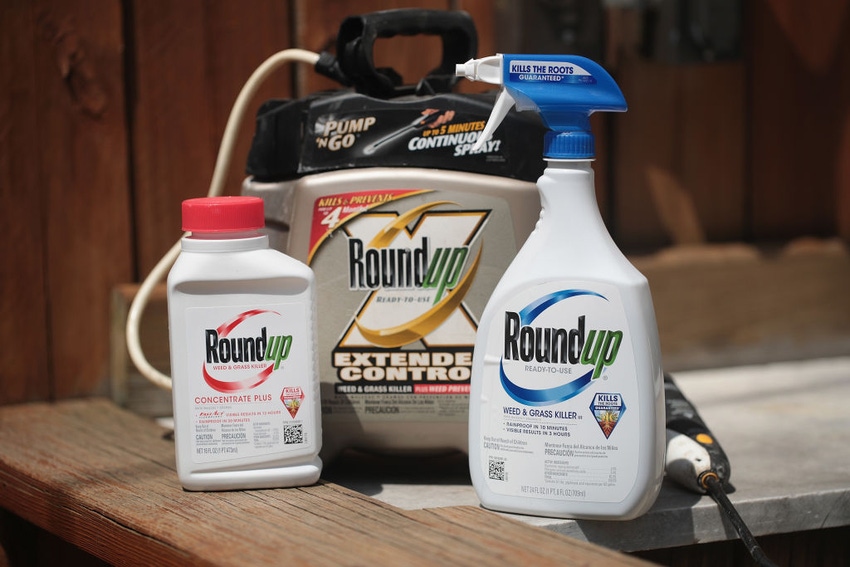
By Greg Stohr
The U.S. Supreme Court signaled interest in Bayer AG’s bid to stop thousands of claims that its top-selling Roundup weedkiller causes cancer, asking the Biden administration for advice on whether to hear the company’s appeal in potentially a multibillion-dollar case.
Bayer is challenging a $25 million award to Edwin Hardeman, a California man who says decades of exposure to Roundup caused his non-Hodgkin’s lymphoma. Bayer argues that federal approval of Roundup’s label meant Hardeman’s suit -- and others like it -- couldn’t go forward.
The litigation is a test case for what ultimately could be tens of thousands of claims. In July, Bayer said a Supreme Court ruling in its favor would “effectively and largely end” U.S. Roundup litigation, while at the same time setting aside $4.5 billion in case the court rejected the appeal. All told, Bayer has pledged more than $16 billion to fight and settle Roundup litigation.
Related: Bayer gains as jury rejects Roundup cancer link in U.S. trial
Bayer shares jumped as much as 3.2% on the news and were trading at 46.86 euros ($53.18) as of 4:20 p.m. in Frankfurt trading. The stock has lost about half its value since it acquired Monsanto Co., the herbicide’s maker, in 2018.
The Supreme Court action prompted Bayer to say in a statement it won’t take part in any further settlement discussions with lawyers who represent a substantial number of plaintiffs. The company said it was “encouraged” by the request and “believes there are strong legal arguments to support Supreme Court review and reversal.”
The court directed its request to U.S. Solicitor General Elizabeth Prelogar, the Biden administration’s top courtroom lawyer. Under the court’s normal scheduling practices, the justices probably will say before their term ends in late June whether they will hear the case.
The Monsanto purchase closed just weeks before the first U.S. jury found that Roundup had caused cancer. The company has lost three of the five cases to go to trial, though it has won the two most recent verdicts.
Hardeman says he used Roundup from the 1980s to 2012 on his large plot of land in Sonoma County, about 60 miles (100 kilometers) north of San Francisco. He was diagnosed with lymphoma in 2015.
He sued under California law, claiming that Monsanto’s failure to warn of Roundup’s carcinogenic risk caused his illness. Jurors awarded him more than $80 million, later cut by the trial judge to $25 million. A federal appeals court upheld the award.
Pesticide law
At the Supreme Court, Bayer argues that Federal Insecticide, Fungicide, and Rodenticide Act shields the company from liability. FIFRA, as the law is known, says states may not impose packaging or labeling requirements that are “in addition to or different from” those under the federal law.
The Supreme Court interpreted that provision in 2005 to allow failure-to-warn suits under state law as long as the state requirements are “genuinely equivalent” to those under FIFRA.
Related: Bayer loses second appeal in Roundup case
In its appeal, Bayer contends the verdict and appeals court ruling held the company to a tougher standard than federal regulators have under FIFRA. Bayer says the Environmental Protection Agency in 2019 told manufacturers of glyphosate, the active ingredient in Roundup, that no request to add a cancer warning would be approved because it would be false and misleading. Bayer has steadfastly maintained Roundup doesn’t cause cancer.
Under the appeals court ruling, “a company can be severely punished for marketing a product without a cancer warning when the near-universal scientific and regulatory consensus is that the product does not cause cancer, and the responsible federal agency has forbidden such a warning,” Bayer argued.
Hardeman’s lawyers disputed that contention, saying the EPA’S 2019 letter doesn’t address the “unique risks” posed when glyphosate is combined with other ingredients. They said the EPA has approved warnings on glyphosate-based formulations like Roundup and has never reached any conclusion as to whether those formulations cause cancer.
Under the Supreme Court’s 2005 ruling, “where, as here, a plaintiff proves that a herbicide is dangerous to human health, the manufacturer can be found in violation of both state and federal law,” Hardeman’s team argued.
Bayer also argued that the trial judge improperly allowed expert testimony that Roundup causes cancer. The company said the testimony was speculative.
Bayer announced in July it will pull the current version of the weedkiller off the U.S. consumer market in 2023.
The case is Monsanto v. Hardeman, 21-241.
--With assistance from Jef Feeley and Tim Loh.
© 2021 Bloomberg L.P.
About the Author(s)
You May Also Like




